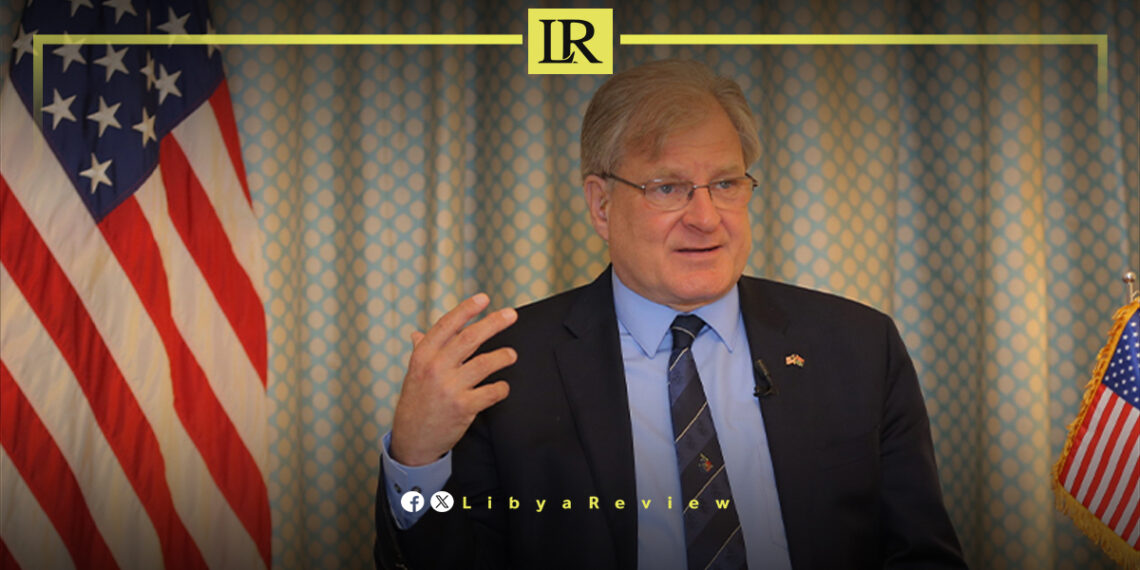On Wednesday, the US Ambassador and Special Envoy to Libya, Richard Norland, renewed calls for the formation of a transitional government in Libya to address the country’s deepening political and economic crises.
During a televised interview, Norland emphasized the need for political transparency and accountability, expressing hope that Libya can resume its political process and hold free and fair elections.
The US Ambassador highlighted the urgent necessity of drafting a roadmap to finally carry out the long-delayed national elections. He also stressed the importance of resolving the ongoing crisis at the Central Bank of Libya, which has become a symbol of the country’s fractured institutions.
Norland pointed to the international community’s concerns about the lack of transparency in the bank’s operations, noting that the crisis reflects Libya’s internal divisions and has worsened its already fragile economy.
“The Central Bank crisis is deepening the economic challenges facing Libya,” said Norland, adding that resolving the issue is essential for moving the country forward. He urged collaboration with the United Nations Support Mission in Libya (UNSMIL) to help agree on the leadership of the Central Bank, a key institution for stabilizing Libya’s financial situation.
U.S. Charge d’Affaires Jeremy Berndt reiterated the growing U.S. engagement with Libyan political and military leaders in related discussions.
Berndt, alongside U.S. Deputy Assistant Secretary of Defense Celeste Wallander and U.S. Africa Command (AFRICOM) Deputy Commander John Brennan, held separate meetings with Field Marshal Khalifa Haftar, the commander of the Libyan National Army (LNA) in Benghazi, and Abdul Hamid Dbaiab, Prime Minister of the Tripoli-based Government of National Unity (GNU).
Both meetings focused on bolstering the U.S.-Libya military partnership and supporting Libya’s efforts to unify its security forces.
Libya has remained deeply divided since the fall of Muammar Gaddafi in 2011, with rival governments and factions in the east and west vying for control.
The Central Bank of Libya, a key institution responsible for managing the country’s oil revenues, is split between rival factions aligned with the competing governments.
This division has crippled efforts to implement unified monetary policies, weakened the Libyan dinar, and exacerbated inflation. The lack of transparency in the bank’s dealings has alarmed the international community, with the U.S. urging swift action to restore accountability and resolve the leadership impasse.


